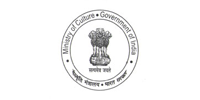
They obsess with endless anxieties that end only with death. Yet, they remain assured that gratification of desires and accumulation of wealth is the ultimate objective of life.
The verse from the Bhagvad Gita is the substratum of what spiritual economy explicates in terms of material and non material pursuits of life. Spiritual Economy as a concept bridges the corporeal, worldly and the transcendental or intangible aspects of human existence. While economics is indicative of the prevailing conflicts of a capitalist or aspiring to capitalist society; spirituality deals with something that is sacred and posses the power to heal. The discipline recognizes the value that both economics and spirituality lend to each other. No economy devoid of spiritual pursuits can grow sustainably. Materialism or spirituality alone is not capable of thriving unless they coexist.
It is an understanding and practice of consciousness in business and behavior. A cross-disciplinary study combining psychology, economics and the spiritual science of the vedas and Indian culture to explain the vying among rivalry, deceit as success strategy, cut-throat competition, ignorance of culture and ethical values considering as obstacle to growth and development, unending economic hardship, exploitation, inequity, and struggle in this world, economic methods devoid of peace and sustainability and emerging ecological problems.
Since Economics is a man-made creation which is a set of ideas entirely created by human beings, if we want to understand the economic problem and its solution we must understand how and why human beings act in this world? That will give us the insight needed to properly adjust the economic activity and human consciousness and all of the parameters of the economic calculus to get the desired result.
Pubic Administration literature also identifies the two dimensions through the hierarchy of needs. It suggests that the attainment of basic physiological needs of food and shelter is followed by security needs which are fulfilled by financial gains. Having achieved these needs, man tends to move into the realm of self actualization which we refer to spirituality, thus making it imperative to understand that human consciousness does not cease to exist on obtaining wealth. Rather, it constantly impels man for more, which could be misunderstood as material urge. It is this cycle of physiological, psychological, security and spirituality needs that becomes the principle of humanity.
Spiritual Economics analyzes economic behavior as a function of human consciousness, and explains the development of consciousness using concepts from the Vedas and Bhagvad Gita.
In closing, while drawing from the blanket of our Dharma, Culture and Development series; which we have started from Kumbh Conclave -Prayagraj, we attempt optimistic towards being able to create a realm where spirituality and culture flow effortlessly into the practice of politics and economy.
Therefore, to delve into such a convergent discipline, we firmly believe that Goa as a place, owing to its rich and varied historical, cultural and economic attributes would do justice to this conclave.
Shree Datta Padmanabh Peeth at Kundaim will witness an amalgamation of people from different cultures, disciplines and geographies to enlighten us with their insights while conversing over the subjects and theme of the conclave.
List of Key Speakers (Confirm and invited *)
(2:30 PM-3:00 PM)
Technical Session 2
India has from centuries been a nation of religious diversity and cultural homogeneity. The Indian culture is defined as an amalgamation of several rituals and traditions that have developed over a history of more than a millennium.
The Kumbh Conclave 2018-19 is inspired by the majestic Kumbh celebration which is one such cultural heritage of India that encounters the spiritual conglomeration of tens of millions of devout pilgrims, religious scholars, philosophers and preachers. before that) the Kumbh Mela has become the largest public gathering in the world which is an intangible world heritage by the UNESCO.
The “pop up mega city” (Kumbh Mela) built on the broad sandy flats left by the recording rivers, i laid out on a grid which is constructed and deconstructed within a matter of weeks. Creating a huge encampment of tents (The city of tents) entailing multiple aspects of contemporary urbanism, city planning and management , engineering and spatial zoning (planning Mela city in zones and sectors ), land allocation, an electricity grid, water lines and sanitation system, food and water distribution plans, roads of chequered plate, pontoon bridges , drainage , hospitals and vaccination centers, police and fire stations and public gathering space, markets and stall, special railway and bus arrangements.
Kumbh being the largest religious congregation on earth, it is the world's best place to experience a perfect example of public administration, city planning, social governance and civic management.
The Kumbh Conclave 2018 is similarly designed to enrich and enhance this culture of dialogue and debate amongst the scholars of modern India to discuss on the role of economics, politics, society and culture in good governance which is Dharma. It is a confluence of scholars at Triveni-Prayagraj to discuss the aforementioned aspects in the context of Dharma and righteousness.
It is structured to exhaustively deliberate on the ancient culture and tradition along with contemporary developments in the Indian society for religious celebrations, social harmony and humanity that is associated with such festivals. It also emphasizes on social inclusion and the message of peace. The Conclave will explore Dharma as a means of good governance from spiritual scholars and pragmatic solutions from the policy experts.
It is also an opportunity for young intellectuals and students to discover and promote new ideas and visions contributing towards this cultural and ideological assimilation.
With this real intent and message of our rituals Dharma, Culture and Development, the conclave would focus on engaging and bringing together individuals from varied sections of the society for the scholarly nectar of immortality to enlighten their minds through ideological churning.

They obsess with endless anxieties that end only with death. Yet, they remain assured that gratification of desires and accumulation of wealth is the ultimate objective of life.
The verse from the Bhagvad Gita is the substratum of what spiritual economy explicates in terms of material and non material pursuits of life. Spiritual Economy as a concept bridges the corporeal, worldly and the transcendental or intangible aspects of human existence. While economics is indicative of the prevailing conflicts of a capitalist or aspiring to capitalist society; spirituality deals with something that is sacred and posses the power to heal. The discipline recognizes the value that both economics and spirituality lend to each other. No economy devoid of spiritual pursuits can grow sustainably. Materialism or spirituality alone is not capable of thriving unless they coexist.
It is an understanding and practice of consciousness in business and behavior. A cross-disciplinary study combining psychology, economics and the spiritual science of the vedas and Indian culture to explain the vying among rivalry, deceit as success strategy, cut-throat competition, ignorance of culture and ethical values considering as obstacle to growth and development, unending economic hardship, exploitation, inequity, and struggle in this world, economic methods devoid of peace and sustainability and emerging ecological problems.
Since Economics is a man-made creation which is a set of ideas entirely created by human beings, if we want to understand the economic problem and its solution we must understand how and why human beings act in this world? That will give us the insight needed to properly adjust the economic activity and human consciousness and all of the parameters of the economic calculus to get the desired result.
Pubic Administration literature also identifies the two dimensions through the hierarchy of needs. It suggests that the attainment of basic physiological needs of food and shelter is followed by security needs which are fulfilled by financial gains. Having achieved these needs, man tends to move into the realm of self actualization which we refer to spirituality, thus making it imperative to understand that human consciousness does not cease to exist on obtaining wealth. Rather, it constantly impels man for more, which could be misunderstood as material urge. It is this cycle of physiological, psychological, security and spirituality needs that becomes the principle of humanity.
Spiritual Economics analyzes economic behavior as a function of human consciousness, and explains the development of consciousness using concepts from the Vedas and Bhagvad Gita.
In closing, while drawing from the blanket of our Dharma, Culture and Development series; which we have started from Kumbh Conclave -Prayagraj, we attempt optimistic towards being able to create a realm where spirituality and culture flow effortlessly into the practice of politics and economy.
Therefore, to delve into such a convergent discipline, we firmly believe that Goa as a place, owing to its rich and varied historical, cultural and economic attributes would do justice to this conclave.
Shree Datta Padmanabh Peeth at Kundaim will witness an amalgamation of people from different cultures, disciplines and geographies to enlighten us with their insights while conversing over the subjects and theme of the conclave.
Shree Datta Padmanabh Peeth, Tapobhumi, Kundaim - Goa
+91-7507771750, 7507771754
http://srigurudev.org
india@indiathink.org , tapobhoomigoa@gmail.com, advsirajshelar@gmail.com
India Think Council (ITC),
#20 Ansari Road, Daryaganj, New Delhi -110002
+91-9910134307, 9911107819
india@indiathink.org , secretary@indiathink.org, saurabh.pandey@indiathink.org
Organising
Advisory
Executive









